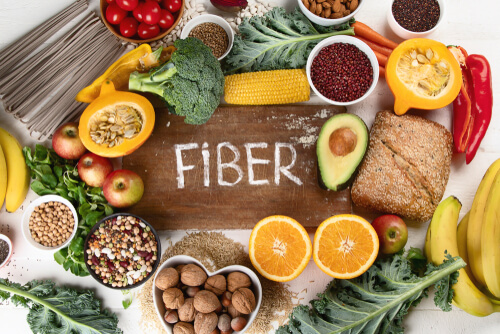How a Fiber Rich Diet Helps You Stay Safe from Chronic Diseases

Including dietary fiber in your regular diet is a great way to lower your risk of suffering from chronic diseases, like cancer, heart disease, and strokes. Fiber is a type of carbohydrate that your body cannot break down and store as fat. It passes through your system undigested. Fiber comes in two forms: soluble and insoluble. The majority of fiber rich foods have some of both in them. Fiber can also be classified as “functional” and “dietary”. Dietary fiber is the indigestible parts of plants. The functional kind is made in labs and extracted from plants and typically found in supplements.
Why a fiber rich diet?
It is considered to be good for preventing chronic diseases because it has the ability to lower blood pressure and regulate cholesterol levels. It lowers your “bad” LDL cholesterol levels while increasing your concentration of “good” HDL cholesterol levels. This has tremendous effects on other diseases, like diabetes, strokes, and certain types of cancer. Fiber also helps to regulate your weight due to its indigestible nature. Other carbohydrates, like those found from refined sugars and refined flour will be broken down and stored as fat. Fiber also takes a long time to digest, so you feel fuller for a longer period of time. This means that you eat less over time.
Eating dietary fiber is also a great way to regulate your blood glucose levels, as fiber does not require insulin to digest it. If you are suffering from insulin resistance, then fiber can be a good healthy option for you. This can affect everything from your pancreatic health to your liver health.
Eating fiber won’t automatically prevent you from developing chronic illnesses, but it will go a long way to keeping you healthy. So, get to enjoying some oatmeal today.

